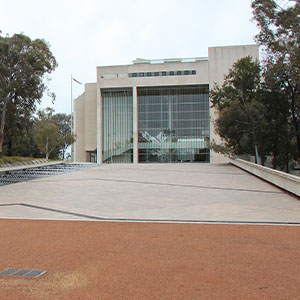This was a judgment approving the settlement of a class action against Uber brought on behalf of participants in the taxi and hire car industries. Put briefly, the class action sought damages for loss of income and a reduction in the value of taxi and hire car licences that was allegedly caused by the unlawful introduction and operation of UberX in various States.
The class action settled on the eve of trial, in March 2024, for $271.8 million. In this judgment, Justice Mathews approved: (a) the proposed settlement and Settlement Distribution Scheme (SDS); (b) legal costs in the amount of approximately $38.9 million; (c) and litigation funding charges in the amount of $81.54 million (representing approximately 30% of the settlement sum).
Unregistered Group Member (UGM) applications
To a significant extent, the judgment deals with the numerous applications by UGMs seeking the permission of the Court to participate in the proposed settlement (UGM Applications). By way of background, the proceeding was the subject of a ‘soft class closure’ order. Following an opt out and registration process in 2023, 8,701 group members were registered for the class action (RGM). After the settlement was announced, Matthews J made orders establishing a process for UGM Applications, which ultimately resulted in a total of 6,476 UGM Applications being received by the Court-ordered deadline.
Several special measures were adopted to deal with the large volume of UGM Applications, including Maurice Blackburn (MB) reviewing and categorising each application. Her Honour determined most UGM Applications by category, but also many individually. The following principles were adopted in assessing the merits of the UGM Applications:
- UGMs must demonstrate that they would suffer unfair prejudice if they were excluded from participating in the proposed settlement. Prejudice alone is insufficient to warrant inclusion.
- If a UGM was aware of the class closure deadline, but did not take steps to register, they will only have established unfair prejudice if they have a persuasive and credible reason for not registering.
- UGMs may have a credible explanation for not receiving notice of the class action notwithstanding there was no deficiency in the distribution of the notice.
- If a UGM was neither aware of the proceeding nor the class closure deadline, their reason(s) for their lack of awareness will be assessed on its merits.
Matthews J then dealt with the UGM Applications in the following manner:
- First, her Honour found that the regime for notifying group members of the proceeding, and the class closure deadline, were neither defective nor inadequate.
- Secondly, UGM Applications that were categorised as invalid, not supported by evidence or which did not identify the basis on why leave ought to be granted were (generally) dismissed.
- Thirdly, the remaining UGM Applications were individually reviewed by her Honour, who adopted the following approach:
Given the nature of the UGM Applications, my review and assessment focused on whether the UGM had explained, with sufficient particularity, why they had not registered by the Class Closure Deadline. For an application to be successful, it had to meet that requirement. Where other factors … were mentioned, those factors needed to be, or to be capable of being, linked to an explanation as to why the Class Closure Deadline was not met. Generalised statements without any specificity were not sufficient.
Ultimately, Matthews J individually reviewed 1,403 UGM Applications and granted 140 UGMs leave to participate in the proposed settlement.
Fairness and reasonableness of the proposed settlement
Her Honour was satisfied that the proposed settlement of $271.8 million was fair and reasonable, including as between group members. In particular, the quantum of the proposed settlement was within the range of fair and reasonable outcomes in all the circumstances. Further, very few group members objected and the vast majority appeared to have reacted positively.
For most claims, the proposed SDS provided that the scheme administrator would not conduct an enquiry into the circumstances or losses of any individual group member or require group members to produce financial records or other direct evidence of loss. As such, it was proposed that identically situated group members were to receive identical payments. MB had estimated that individually assessing the claims of 8,701 RMGs would cost in the range of $50-55 million and take approximately three years to carry out. Further, individual assessments were likely to be hindered by evidentiary challenges and language barriers. Accordingly, Matthews J found that the proposed SDS struck the acceptable balance between fairness to group members on the one hand and practically on the other.
MB was also appointed as the settlement administrator, as this was the course likely to maximise efficiency and minimise further costs.
Legal costs
Catherine Dealehr, who had been appointed by the Court as a special referee, opined that the legal costs incurred by MB were not disproportionate to the work performed. In particular, the amount sought by MB for professional fees incurred to 30 April 2024 was less than the amount which Ms Dealehr considered reasonable after applying a ‘gross sum’ costs methodology. Accordingly, Matthews J found that the legal costs, including an uplift fee of 25% in respect of the unfunded portion of professional fees, were reasonable in all the circumstances.
Litigating funding charges
Under Harbour’s litigation funding agreement with the plaintiffs and 98% of RGMs, it was to receive 30% of any settlement sum. Matthews J confirmed that the present state of the law in Victoria makes clear that a common fund order can be made at settlement (pursuant to s 33V(2) of the Supreme Court Act 1986 (Vic)). Her Honour considered it appropriate that a common fund order be made. Her Honour also found that Harbour’s funding commission was fair and reasonable because: the litigation was long-running, hard-fought and complex; Harbour had incurred costs of $35.2 million over six years; and the ATE insurance obtained covered only part of the adverse costs risk assumed.
Although the funding commission was at the ‘higher end’, this reflected the context of such complex litigation. Matthews J concluded:
It has been suggested in other cases that, where there is a very large settlement, there may need to be a lower funding commission rate to ensure proportionality of the amount of the commission to the risk assumed. This is undoubtedly a large settlement, however, I do not consider that the funding commission rate should be lowered here, noting the significant risks assumed by the funder over such an extended period, and the monies expended by the funder, which in this case, appear to me to justify the commission sought.
Andrianakis v Uber Technologies Inc and Others
(Settlement Approval) [2024] VSC 733
Supreme Court of Victoria | Matthews J | 2 December 2024
Plaintiffs’ Solicitors: Maurice Blackburn
Defendants’ Solicitors: Herbert Smith Freehills
Plaintiffs’ Funder: Harbour Fund III, L.P
Plaintiffs’ Funder’s Solicitors: Webb Henderson
We're here to help
Contact us today
Learn more about our class actions work
We're Australia's leading class action practice, and we've obtained more than $5 billion in settlements for our clients.
Easy ways to get in touch
We are here to help. Give us a call, request a call back or use our free claim check tool to get in touch with our friendly legal team. With local knowledge and a national network of experts, we have the experience you can count on.
Office locations
We’re here to help. Get in touch with your local office.
Select your state below
- VIC
- QLD
- NSW
- WA
- ACT
- SA
- TAS
- NT
We have lawyers who specialise in a range of legal claims who travel to Australian Capital Territory. If you need a lawyer in Canberra or elsewhere in Australian Capital Territory, please call us on 1800 675 346.
We have lawyers who specialise in a range of legal claims who travel to Tasmania. If you need a lawyer in Hobart, Launceston or elsewhere in Tasmania, please call us on 1800 675 346.


